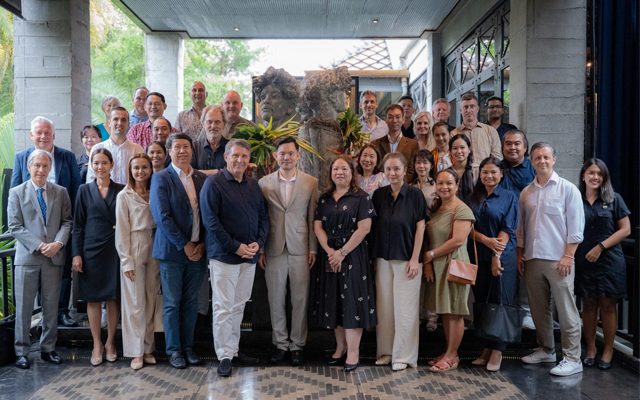A consortium of hotels in north Phuket has come together under a new private-sector initiative to reposition the region as a compelling destination for corporate groups.
Led by The Slate and involving up to 20 hotels, the campaign was sparked during a leadership luncheon in Bangkok earlier this year, where Jeff Fongmool, founder and CEO of MICE Magnet Asia, proposed the creation of a unified identity for north Phuket.

Drawing on his DMC expertise, he presented fresh ideas around community-focused tourism and off-property experiences, highlighting the area’s natural assets and connectivity. The proposal resonated strongly with local hoteliers, which ultimately led to the creation of the Above & Beyond slogan – an expression both of the region’s location and its elevated vision for tourism.
“When Jeff told us we should talk more about the north of Phuket, it really sparked something,” said Claude Sauter, general manager of The Slate.
“When we launched the idea, people were very curious. About 90 per cent of the hotels we invited to the first meeting (on June 5) showed up – general managers who are usually too busy made time because they saw the potential,” he said.
Stretching from Naithon and Nai Yang to Mai Khao, Phuket’s north boasts luxury and independent hotels, marinas, golf courses, and national parks – many just five to 10 minutes drive from Phuket International Airport.
“We used to avoid saying we were close to the airport, fearing people would think of noise. But for MICE organisers, that proximity is now a real advantage,” Sauter said.
The campaign is not limited to hotels – even Bumrungrad International Hospital, which is building a facility in the north, has joined in early discussions.
“It is not just about hotels – it is about creating a destination. That includes healthcare, marinas, and community tourism – particularly with two to three local communities that have emerged as strong players in the north,” he explained.
Moreover, Sauter highlighted there has been an increased interest in local experiences such as growing rubber trees, visiting pineapple farms or planting rice.
Moving forward, the group plans to approach the Thailand Convention and Exhibition Bureau (TCEB)’s and private sector consortiums such as Thailand Incentive and Convention Association to build on the campaign.
“It aligns well with TCEB’s strategy to segment Phuket into distinct zones,” said Sauter. He was referring to the new “Anatomy of Phuket” approach publicised by the government earlier this year which splits the island into four districts with unique selling points. These selling points Sauter noted, will help planners “make it easier to understand its possibilities as a destination”.
The North Phuket campaign – for which a website has already been launched – will roll out a series of strategic marketing efforts designed to amplify the region’s appeal to event planners and corporate travellers.
These include fam trips for event organisers and media, hyper-local storytelling through short-form video content, a micro-publication focused on community, culture and sustainability, and a mobile-first digital campaign aligned with current booking behaviours.





















